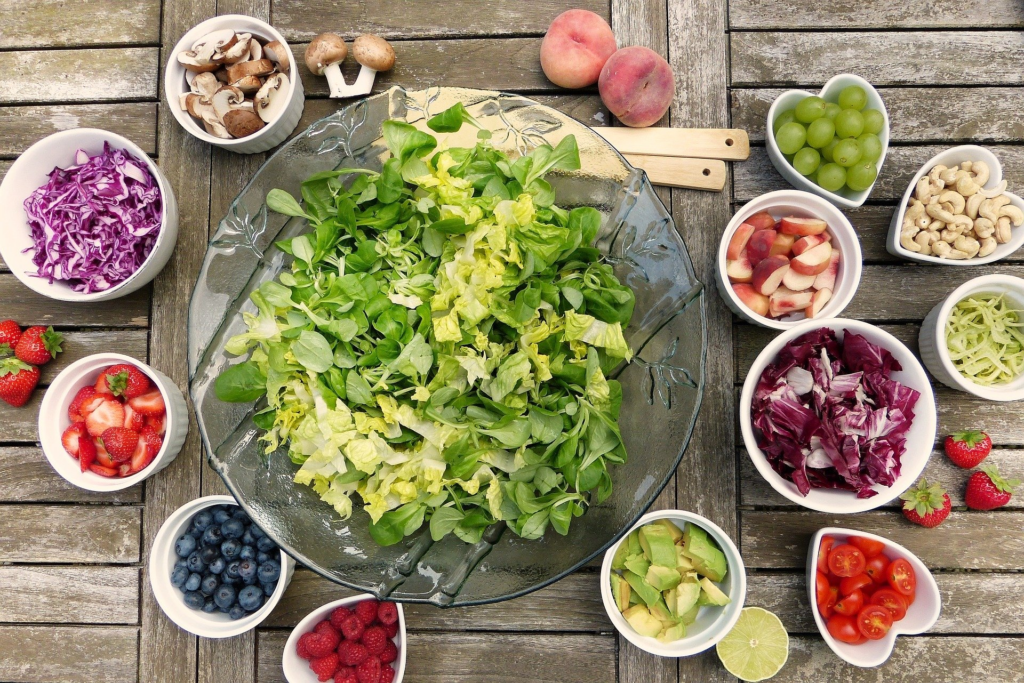Energy low? Feel gassy and bloated after eating a meal? Don’t reach for the antacids. Consider food combining.
Food combining is NOT a diet. It’s a method of eating that allows for the efficient, proper digestion of food.
When eating in this way, fat is able to burn away efficiently, allowing the body to digest all food particles.
How to Practice Food Combining
The main thing to remember with eating this way is not to eat certain foods at the same time as it will hinder good digestion.
Group 1: Proteins
- Cheese
- Eggs
- Nuts
- Fish
- Meat
- Milk
- Poultry
- Shellfish
- Soybeans, tofu and soy products
- Yogurt
Group 2: Carbs
- Grains, including oats, pasta, rice, rye, millet, etc.
- Grain products, such as cookies, bread, cakes, crackers and pastry
- Honey
- Maple Syrup
- Potatoes and starches
- Sugar and sweets
Group 3: Non-starchy vegetables
- Salads and fresh herbs
- Seeds
- Butter, cream
- Olive oil
- Herbs, seasonings and spices
Group 4: All Fruits
Rules of Food Combining
- Do not mix foods in Group 1 (proteins) and Group 2 (carbs)
- Group 3 (vegetables) can be eaten with Groups 1 or 2
- Group 4 (fruits) must always be eaten alone and at least 30 minutes earlier than other foods. Eating fruit with other groups of food traps it in the digestive system behind other foods that take longer to digest. This leaves the door open for gas to accumulate and cause digestive pain. It’s best to eat fruit on an empty stomach, first thing in the morning.
- If eating a carb meal first, eat it 2 hours before eating proteins. If eating a protein meal first, eat it 3 hours before eating carbs.
Remember:
GOOD
Eat fruit alone
Grains + vegetables
Pasta + vegetables
Beans + vegetables
Fish or meat + vegetables
Beans + grains
BAD
Grains + dairy or meat
Fruit + vegetables
Fruit + meats
Fruit + grains or dairy
